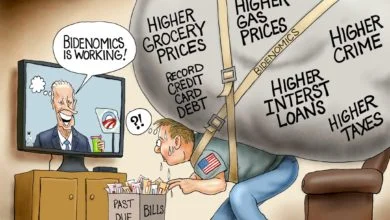Are digital campaigns the machine politics of the 21st century?
The days of strong-arm politics creating a single party-dominance so concrete it rivaled dynastic monarchies, when urban kingmakers such as the infamous Boss Tweed ruled from the smoky back rooms of pool halls, are now like fables in the rich backstory of America’s political heritage. Their primary purpose in the enlightened now is seemingly to convey a moral, one of how Progressive era reforms such as the implementation of the secret ballot and the democratization of the Senate election process worked to better political institutions and make America more like the meritocracy of which the Founders spoke.
But are machine politics a thing of the past, or have they, like the rest of the world, gone digital?
Historically speaking, urban political machines involved three levels of organization. At the bottom were the wards who received incentives like food or the promise to have their interests protected for voting as they were told. Above them were the precinct captains, the faces of the machine who were responsible for getting votes, distributing rewards and punishing disloyalty. At the very top were the party bosses who decided what policies the machines supported and gave the orders to the precinct captains. These were closed political systems with power flowing firmly from the top down; patronage, not merit, determined how far one advanced through the ranks.
Machine politics was very much driven by identity politics, and unity amongst racial and ethnic subgroups was heavily emphasized.
A monopoly on power, strict hierarchy and racial conformism- the trinity of machine politics. But if these ideas sound familiar, it is because they also play an important role in the digital aspect of modern politics which is increasingly become central to the success of campaigns.
Grassroots politics have been revolutionized by social media. All doubt about the importance of populism in the presidency should be removed by the ability of Barack Obama, a little known Senator from Illinois with radical views and a paltry attendance record, to win so decisively in 2008. Obama’s success is in large part due to the heavy on-the-ground presence of local Democratic party organs in all 50 states which Howard Dean helped build during his time as chair of the DNC.
The ability of on-the-ground supporters to connect to campaigns at a local level and to interact directly with representatives from a national campaign has grown with the explosion of social media platforms. Its ties to grassroots fundraising is incredibly important; campaigns have seen exponential amounts of growth from small-money donors, both in terms of the amount of donations and the number of contributions. A recent report from the Federal Election Commission estimated Donald Trump has taken in nearly $100 million thus far from donors giving under $200.
Clearly, the influence of grassroots activists is growing thanks to new modes of communication made possible by digital platforms.
The ability for national campaigns to be active and influential at local levels is evocative of machine politics. In this sense, the coordination of grassroots actors by mid-level campaign staffers who take their orders from insiders is not pejorative. It is simply a strategy that, like urban machines, relies on hierarchical relationships as a way to create ordered efficiency, thus benefiting the chances of success.
What is more negative, however, is the coordinated attacks which partisans on social media platforms use.
Machine politics was not about ideology; it was about power. Social media provocateurs, who can command a large, semi-anonymous army to create a distorted sense of the prevalence of a viewpoint, leverage threats against individuals in the same way precinct captains did. The most notable exception is there power is more abstract. While they do not rely on the hard tyranny of force as a means of coercion, they can use threats to influence behavior patterns which force dissidents into silence and create a false narrative about the degree to which the general public supports an idea.
While this system is not as closed as the urban machines in the past, since anyone can create a social media account and directly threaten an opponent, it depends just as much on patronage. Those individuals who are the most prominent are the ones who receive the most positive attention, expressed in terms of “likes” or “retweets,” which only further distorts the amount of influence they have, thus further warping the sense of political consensus which exists through online activism.




